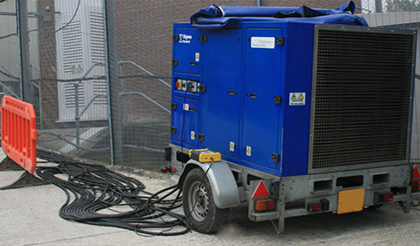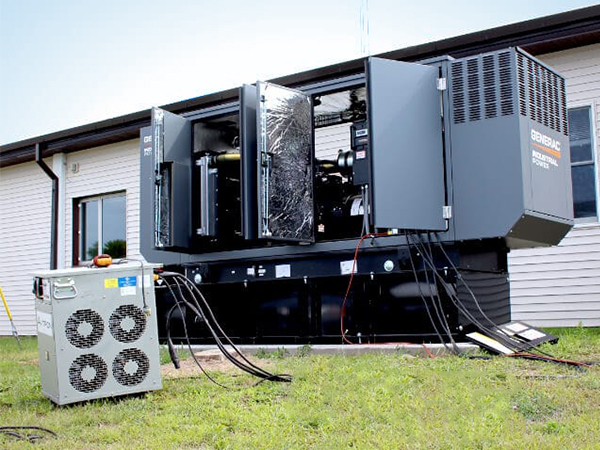Generator Load Bank Testing
Load Bank
ACF Standby Systems generator load bank testing is meant to ensure your backup source of power remains reliable and provides maximum performance when needed. Generator load bank testing refers to a process to assess a generator’s capabilities, verifying all genset components are in optimal working condition under different loads.
Load Bank Testing Diesel Generators
and Natural Gas Generators
What Is A Load Bank?
A load bank is a piece of specialized equipment that produces artificial loads on a generator. It does this by bringing the engine to a certain operating temperature and pressure to simulate the process of the equipment being used during an emergency situation.
How often does a Generator need Testing?
The frequency schedule for load bank testing on a generator often depends on how the generator is classified and what it is a standby for. For example, if a generator is used as a backup for services associated with loss of life or serious injury—such as in a hospital setting—the testing requirements are much more frequent. Data center and financial organizations are generally held to the stronger guidelines, as well.
These standard guidelines are set by the National Fire Protection Agency (NFPA). Load banking is required in NFPA standards where applicable to confirm that rated generator capacity can be achieved.
What are the benefits of Load Bank Testing?
There are many benefits to load bank testing. The first is that you are able to enjoy peace of mind in knowing your generator has the capacity to work in an emergency situation. The second is that problems discovered during this process are usually much less costly to repair than those discovered during a critical situation. An ounce of prevention is worth more than a pound of cure, and ACF Standby Systems’ load bank testing ensures that all small issues are handled before a major problem occurs.


